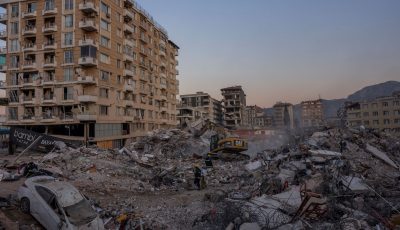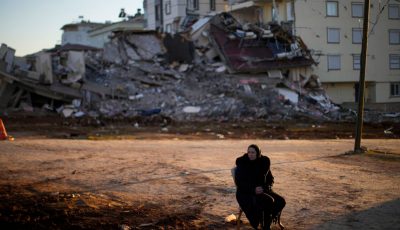The Good Earth
Pearl Buck’s novel, The Good Earth, is one of her trilogy written in the 30s referring to the rich soil in China’s river plains. We now brush into the ever-present particle that clings to clothes and fills the air in the northeast: dust.
Growing up in a rainforest coastal town in the Philippines meant verdant fields. A speck of dust was an intruder, the presence of its kind an indication of a duster’s lethargy, not abundance.
With the accelerated cutting of trees from the forest came stirred dust twice a day from passenger buses that plied the Aparri-Laoag traffic. Soon, dust was no longer a benign stranger to be gently nudged out but an enemy to be banished, belligerently guarded from. Their tribe multiplied with the logging trucks.
Unless the rains failed to arrive as scheduled, Aparri’s dust drenched with the sand. We were a delta at the mouth of the Cagayan River and the sand was more plentiful than their airborne cousins. Still, I developed the obsession of dusting while I grew older. I tolerated or fought the dust, depending on which nook of the planet I was in, tolerating it on Saipan where one mostly grabbed the hankie while inhaling dust at the motorbike races north of Banzai Cliff.
It was in Kano, Nigeria where I was overwhelmed by dust in the air, confronted for the first time by a humongous sand storm from the Sahara, forcing our Lagos-bound plane to prematurely land. I ended up in Ijede by the Lagos Lagoon so I learned to tolerate the soil as part of the scenery rather than grime.
Specks of soil were my first nemesis in Dong Bei, not because they were present but because they were tolerated everywhere. And, yes, it is everywhere.
I lived for three years ending last year on the 11th floor of SAU’s Friendship Villa where the faculty and staff of the International Education College were located and where foreigners are billeted. For the absence of a northern sun in the room assigned to me, I went for a south-facing room that received the sun all year round. A mistake. It also faced a four-lane street to the coal-littered grounds of the steam generating plant across, with swirling dust on the uplift of the Siberian winds that swept down Manchuria’s plains.
Spoiled for the adequacy of university heat and water, I was tolerant of the outside dust as long as I had it under control in my room. A wet mop was a constant, never far from periodic touches to the floor and accumulations in ends and corners got the reach of hand rugs.
The PMI (particulate matter index) alert is quite literally another matter!
When I moved off-campus, I realized how valuable the water was and how the dust is taken for granted in peoples’ daily lives. My solarium plants drown in H20; my neighbor’s are misted. My plants are robust while the neighbor’s are like bonsai. She favors plants that require little dampness. Half of her garden grows cacti. My spider plants with a taro and a few florae bearing white flowers that bloom in the morning and pink in the evening join crawling vines next to the laundry line while bell peppers droop their branches. I germinate durian seeds in the cold!
My neighbor washes clothes and utensils on the sidewalk. She uses the water well before it is thrown out into the street to settle the dust on the ground. Sponge baths get the children cleaned, with liberal use of washcloths applied to strategic lymph nodes to ensure hygiene.
I’ve since learned how to handle water, the kitchen faucets no longer continuously heard running; ditto for shower spouts. I also discovered why the toilet bowl does not hold standing water; one does not flush in doing number three. It goes down by gravity!
My host family’s home near downtown Shenyang proved to be a painful venue of an unforgettable learning occasion. The host Mama went out to the store after a festive meal while the house Papa snored in bed, so I had the kitchen to myself. I did my hosts a favor, dusting off the piled Chinese cabbage, washed the carrots, potatoes, and radishes in the kitchen solarium. A mistake. It turned out the soil delayed the veggies rotting, absorbing the dampness as it dried, giving it the protective cover needed rather than the rapid wrinkling of the skin exposed to air after cleaned.
Dust bugged me in San Jose at Oleai. That was benign compared to the PMI that alarms Dong Bei lungs. Temperature feels cold even under sunshine compared to the greenhouse effect of smog that retains atmospheric heat in the overcast skies; this welcome paradox goes with the facemask. Host mother lost cover protection of the cabbage outer leaves, and the carrot-potato-radish aged faster due to my dust-phobia.
Turkey and pumpkin are in American tables tomorrow, started in a rite of gratitude for the Good Earth’s bounty when Massachusetts’s indigenes and Pilgrim neighbors feasted on the fruits of the New England soil.
Dust on the food table these days is my good earth’s bounty in Manchuria; also, the color of my true loves hair!



























